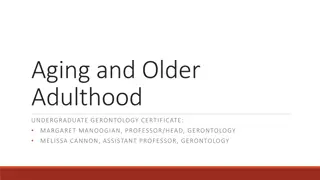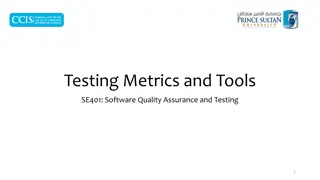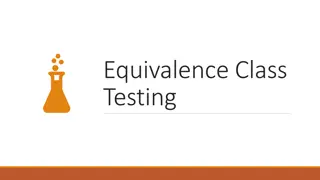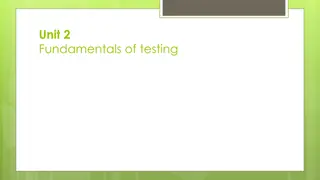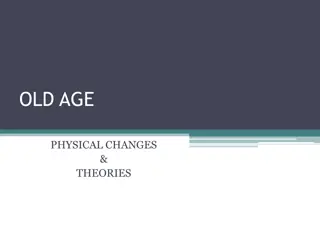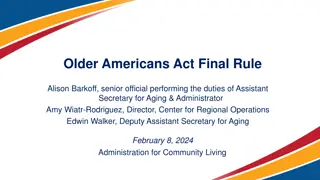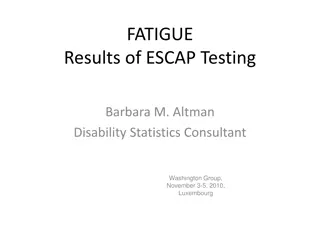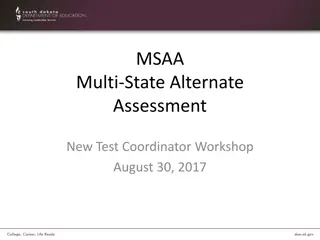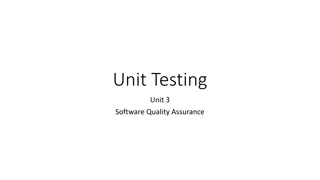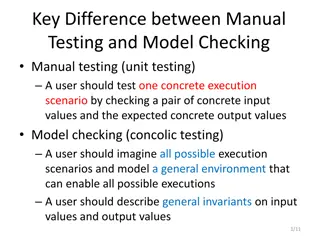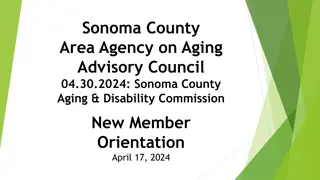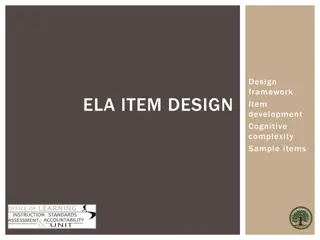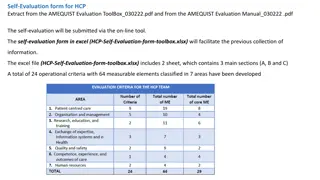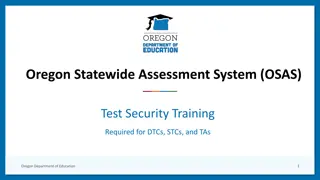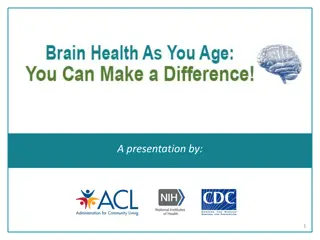Understanding Cognitive Testing in Aging: A Vital Assessment Tool
Cognitive testing plays a crucial role in assessing cognitive abilities and distinguishing normal aging from disease states in older adults. This program, a partnership between OneWorld and UNMC's Geriatrics Workforce Enhancement Program, highlights the importance of cognitive testing, its objectives, and the cognitive domains it assesses. It emphasizes the necessity of interpreting test results in the context of clinical history for accurate evaluation in seniors with cognitive concerns.
Download Presentation

Please find below an Image/Link to download the presentation.
The content on the website is provided AS IS for your information and personal use only. It may not be sold, licensed, or shared on other websites without obtaining consent from the author. Download presentation by click this link. If you encounter any issues during the download, it is possible that the publisher has removed the file from their server.
E N D
Presentation Transcript
Age Friendly Primary Care: A Partnership between OneWorld and UNMC s Geriatrics Workforce Enhancement Program
This program is supported by the Health Resources and Services Administration (HRSA) of the U.S. Department of Health and Human Services (HHS) as part of an award totaling 749,926.00 with 0% financed with non- governmental sources. The contents are those of the author(s) and do not necessarily represent the official views of, nor an endorsement, by HRSA, HHS, or the U.S. Government. For more information, please visit HRSA.gov.
Cognitive Testing Thuy Koll, MD, Division of Geriatrics Department of Internal Medicine
Objectives Describe the broad range of cognitive tests Identify strengths and limitations of cognitive tests
Overview: Cognitive tests structured instruments with standardized administration and scoring assess cognitive abilities distinguish normal from disease states broad range of tests (screening to neuropsychological tests)
Cognitive domains attention memory executive function language visuospatial abilities processing speed * Cognitive abilities decline with age
Cognitive testing and aging (processing speed) Perceive the stimulus- Process the information - Respond Up to 70% of age 80 decline in processing slower at years have measurable speed with older age timed tests hearing loss May affect test performance in other domains
Cognitive testing: one piece of the puzzle Routine medical history and physical examinations is insufficient Cognitive testing is important particularly for older adults with cognitive concerns Impaired score must be taken in context of the clinical history and collateral information
What test should I use? Broad spectrum of available cognitive tests Depends on the clinical situation and context -shorter tests: rapidly administered and interpreted -extensive tests: provide more information to guide a more precise diagnosis and treatment options Other considerations: -resource (time, staffing) -expertise available
Short cognitive tests (<5 min) Example: Clock-Draw-Test and Mini-Cog Efficiently screen individuals for dementia Limited sensitivity for more subtle impairments (mild cognitive impairment) Less useful for assessing disease progression
Moderate length tests (5-15 min) Example: Mini-Mental State Examination, Montreal Cognitive Assessment (MoCA) More sensitive in screening for mild cognitive impairment Tests broader spectrum of cognitive domains Less variability of scores within each domains Fewer data on expected rates of decline when used as a measure for disease progression *MoCA may be better at identification of cognitive impairment beyond AD
Longer length tests (>15 min) Example: Consortium to Establish a Registry for AD (CERAD), Repeatable Battery for the Assessment of Neuropsychological Status (RBANS) More detailed information about the cognitive domains affected More sensitive to changes (disease progression) Still is not the gold standard
Formal neuropsychological testing Most detailed assessment of cognitive abilities relative to a normative population accounting for age, education and gender Better description of brain region affected and underlying neuropathology More sensitivity for change and is better at detecting longitudinal decline in cognition
Interpreting results Normal : may support a decision not to pursue more testing and reassure patient and family. Does not rule out more subtle cognitive changes (may still be upsetting to patients) Ceiling effects for younger and highly educated patients Test characteristics (sensitivity and specificity) are less well defined for other conditions beyond AD (memory and orientation) Possibility of false positive results (less education, of different cultural backgrounds, or tested in languages other than their native language)
Summary Important to distinguish normal from disease states with cognitive testing Choice of the appropriate test is dictated by the clinical situation (precision in diagnosis for treatment) and clinical context Cognitive testing is only one piece of the necessary work-up for cognitive impairment. Collateral history is important.
















